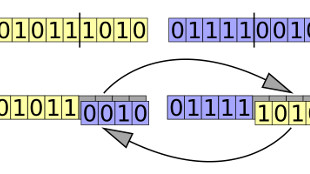 WIKIMEDIA, YEAROFTHEDRAGON
WIKIMEDIA, YEAROFTHEDRAGON
Retired professor and computer scientist, John Henry Holland, passed away from cancer earlier this month (August 9) at age 86. Holland was known for his contribution to developing the field of adaptive systems in computer science, as well as genetic algorithms that incorporate mating and mutation variables to mimic the process of natural selection.
“John is rather unique in that he took ideas from evolutionary biology in order to transform search and optimization in computer science, and then he took what he discovered in computer science and allowed us to rethink evolutionary dynamics,” David Krakauer, president of the Santa Fe Institute, a think tank that Holland helped start, said in a statement.
Holland’s 1975 book, Adaptation in Natural and Artificial Systems, is thought of as ...























